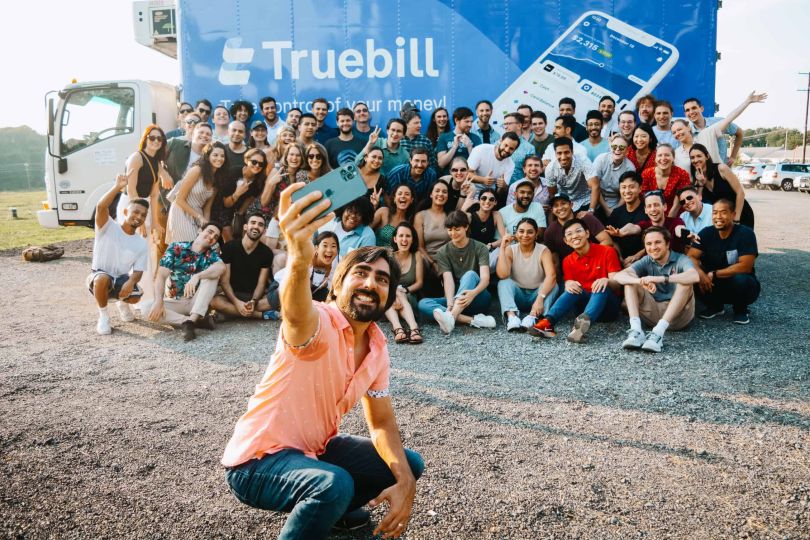There’s no getting around it: The recruitment process needs an attitude adjustment.
Right now, interviewees might exaggerate their experience and abilities and downplay their humanity to acquire a job — CNBC reported that 78 percent of job candidates at least considered misrepresenting themselves on their application. And recruiters are no better; they can overvalue the company and mislead candidates on expectations and perks in order to snatch up the most qualified applicant — the Harvard Business Review even published a 2019 article titled “Stop Lying to Job Candidates About the Role.” This has a profound effect on hiring: G2 reported that 63 percent of job seekers would reject a job if they had a bad candidate experience.
For a lot of places, that’s how it is — but not how it has to be. Plenty of companies are setting a positive example for how to recruit top talent through honest, human-focused hiring practices. Instead of selling their company to the most qualified bidder, these companies focus on clarity, communication and an understanding that hiring a candidate should be a mutually beneficial arrangement.
Built In San Francisco sat down with five tech companies that take an empathetic, thoughtful approach to every step of the recruiting process. The earnest excitement that these recruiters from Wix, Truebill, CodeSignal, Real Chemistry and Clari show for their company culture and process is indicative of how effective these methods can be.
What is the most important thing you want candidates to learn about your company, and how do you communicate it during the hiring process?
Wix was founded on the idea that our tools give users equal access to be successful. When I first joined, I learned this idea extends to its employees too.
During my interview process, Wix focused on understanding my passions and motivations. Rather than only asking about my experience, they wanted to know me as a person.
The company is constantly growing and looks for people from diverse perspectives to grow with it. It was important for me to feel confident that I could do the role and that Wix had an environment I would enjoy and thrive in. These interviews showed me I would.
When I joined the recruiting team, I wanted to continue offering this experience. To do this, I openly communicate the expectations to show candidates how they can succeed here. I also highlight our culture, the Wix way, and share insights about our values found on our Wix Life blog to ensure their decision to join is right for both of us.
More importantly, I highlight how much Wix cares about its people as individuals. Whether it’s being sent a wellness care package when I fell sick or being given mental health PTO days and benefits, Wix is always coming up with new ways to put their people first.
What are three ingredients that create a great candidate experience?
There are many components we look at when mapping out a candidate journey, but the main drivers of candidate experience are clear expectations, ease of application and providing timely feedback throughout the process.
First, clear expectations: Every communication starting from the job description should provide a very clear picture of what the process and role will entail. A candidate should be able to understand not only how this position could contribute to their individual growth and success, but also how their unique skills will add to the incredible culture we’ve built at Wix.
Second, ease of applying: We value our candidate’s time, which is why we use tech to make the application process easy and seamless. Once they’ve submitted a resume, we don’t require the tedious process of manually inputting their work history too.
Finally, communication: Every candidate we speak to is a potential new team member, so it’s of utmost importance we communicate in a timely manner. Even if the communication is to say we have no updates, there should never be uncertainty in the process.
The main drivers of candidate experience are clear expectations, ease of application and providing timely feedback throughout the process.”
How has your candidate experience changed over time, and why did you enact those changes?
At Wix, we pride ourselves on being experts in our craft and having direct and transparent conversations. When we took a look at our hiring process, it became apparent that transparency wasn’t initially being extended to our candidates.
There was ambiguity around what was going to be discussed in each stage of the process, as well as generic rejection notes sent when a candidate didn’t pass a stage. That didn’t align with the experience we set out for our employees or customers.
We became more direct in our communication, stating exactly what was going to be spoken about and shared decks, blogs and any additional links that could add context and help a candidate better prepare for the interview.
For candidates that make it past the first stage of our interview process, we automatically include a line of feedback in all rejection emails and the opportunity for a feedback call with one of our talent acquisition experts. This is important because we value the time each candidate spends with us and want to share why we chose to not proceed and offer constructive feedback that can help them in future interviews.

What is the most important thing you want candidates to learn about your company, and how do you communicate it during the hiring process?
I want candidates to walk away from our interview process feeling like they got a true sense of our culture at Truebill.
I always like to share a glimpse of Truebill’s culture in my initial interview with the candidate — discussing our different ERGs, sharing about the last time we got together as an entire company to celebrate an accomplishment or explaining something as simple as our monthly team dinner tradition.
We also want the candidate to get a feel for the culture of the team they might be joining. We incorporate this in the interview process by ensuring that the candidate not only meets their potential manager, but also some of their peers that they will be working with on a daily basis. We’ve incorporated working sessions into our interview process, where the interviewer and the candidate can work through a problem together, and get a feel for what it would be like to collaborate like in the real working environment.
What are three ingredients that create a great candidate experience?
First, communication: Candidates should never feel in the dark. It’s important that each candidate knows what to expect throughout the interview process and is informed every step of the way. Whenever possible, I like to follow up with candidates within 24 hours of the interview.
Second, feedback: Regardless of whether we hire a candidate or not, it’s important to provide them with feedback after the interview process. Feedback and suggestions after the interview provide the candidate with an idea of what it’s like to work at our company, but also knowledge that they can use in future interviews. I’ve found that candidates really appreciate this, and are always looking to improve their interview skills.
Finally, a consistent interview process: Creating a consistent process prevents interviewers from asking the same questions between stages and also helps with efficiency throughout the hiring process — I like to outline the interview process for the candidate during the initial phone interview, so the candidate feels prepared and knows what to expect throughout the process.
It’s important that each candidate knows what to expect throughout the interview process and is informed every step of the way.”
How has your candidate experience changed over time, and why did you enact those changes?
We’ve included small gestures throughout the hiring process in effort to make the candidate feel valued — providing them with premium access to our app, sending them a welcome kit with Truebill swag when they accept our offer, and also encouraging the hiring panel to reach out to the candidate to congratulate them once they have accepted the offer.
While most of our teams are remote-first, we also value collaboration, which is why we recently started offering accommodations for new hires to come into our home office for their first week to meet the team and see the Truebill office, if they’re up for it.
What is the most important thing you want candidates to learn about your company, and how do you communicate it during the hiring process?
CodeSignal was mission-built to help companies go beyond resumes and objectively measure candidate skills. We’re changing the way companies find technical talent. We are driven by our four company values: Be helpful and empathetic, take ownership, move quickly and make mistakes, and have a point of view and embrace debate. We broadcast our values widely at recruiting process entry points, in hopes that the right candidates will opt in. Our values are highlighted on our careers page and in every job description we publish.
As candidates move through interviews, we want them to understand how important these guiding principles are to succeed as a Signalite, so we ask questions to determine how closely they align with our values. Our interview process is not simply a test to see whether a candidate can perform a job; it is a give and take, where candidates learn about our unique and purposeful culture to determine whether it’s one they’ll feel happy and challenged in.
What are three ingredients that create a great candidate experience?
Curating a process that reduces bias is crucial for a great candidate experience. When applicants are secure in the knowledge that they’ll be evaluated according to objective measures of skill and structured behavioral assessments, they can perform at their best. They don’t have to worry about lacking or living up to a pedigree.
Candidates appreciate interview content that feels relevant to the job they applied to, and we’ve found that true-to-life experiential interviews also contribute to a positive candidate experience. We aim to replicate real work life in CodeSignal interviews, and often ask candidates to imagine themselves making a decision or facing a challenge in the role they’re interviewing for. Of course, we always provide context in advance.
Clear and prompt candidate communication fosters trust, and honors the time candidates spend with us. CodeSignal sets candidates up for success by communicating upcoming interview stages, providing the names and titles of interviewers and sharing each session’s focus areas. We provide updates as soon as we have them, and are as transparent and direct as possible.
Our process is a give and take, where candidates learn about our unique and purposeful culture.”
How has your candidate experience changed over time, and why did you enact those changes?
From the early days, CodeSignal has embraced a remote-first environment, so we were lucky that we didn’t need to make significant changes to our interview process. That said, we are constantly refining our candidate experience in response to feedback. We survey every candidate as they exit the process to learn how we can continue to improve.
Recently, we’ve started providing more reference information, including a helpful FAQ with information about our recruiting process, timeline, compensation philosophy, distributed remote workforce, company culture and benefits. This is something candidates receive early in the process and can refer back to as they move closer to a CodeSignal offer.
We've also introduced a CodeSignal assessment for every position — not just technical roles. This gives candidates the opportunity to experience our platform and helps them understand the product they’ll contribute to if they join us at CodeSignal. It also reinforces our hiring philosophy, which emphasizes objective measures of skill over quick resume screens.

What is the most important thing you want candidates to learn about your company, and how do you communicate it during the hiring process?
We make sure candidates feel safe to bring their whole selves to the interview process, not just their best selves. We want to know what grinds their gears, what they’ve not liked about past roles and what could drive them away from joining — or even worse, keep them from staying on as employees. We even want to know what they like to do outside of work or on the weekends, as another way of getting to know them as people. Real Chemistry is a very “come as you are” place and I hope we manage to get that out of candidates by setting our own guards down at the onset. We’ve all had past experiences that have shaped us and not all of them are positive, but that’s okay — we’re humans, and they should feel like they can be too.
What are three ingredients that create a great candidate experience?
Consistency is a key ingredient to a great candidate experience. They get one recruiter and one candidate experience coordinator from start to finish. To be passed back and forth from recruiter to recruiter, or to jump points of contact throughout, would give candidates a certain whiplash and bad feeling about their prospective new home.
Clarity is of the utmost importance. It might take a few email chains, phone calls and a zoom or two on our end to find the best fit for an ideal candidate, but that’s the work of rolling out a great experience. We always make sure we’re clear with candidates as to who they’re meeting, their person’s title and function within the organization and the reason for them being their next chat.
Closing is the most important factor to a good candidate experience: The goal is finding that near-perfect person to add to our growing teams. Capping off a search with a happy and excited team and an even happier incoming employee is more precious than ever these days.
Real Chemistry is a very ‘come as you are’ place and I hope we manage to get that out of candidates by setting our own guards down at the onset.”
How has your candidate experience changed over time, and why did you enact those changes?
While our candidate experience has some evergreen workflows and best practices, we’re always iterating. Our TA team adopts the agile motto of “iterate to great,” whereby we’re always improving upon our last great idea; funnily enough, that’s kind of the Real Chemistry way. We know our candidates trust us to find for them a role in a company where they can be challenged and pushed to excel, and our internal stakeholders trust us to find the best talent and get them through the doors seamlessly and confidently.
Historically, this led to a lengthier interview process, as in all the excitement of knowledge-sharing our interview panels had a tendency to rope in others outside the predetermined roster. Therefore, we remedied this with a three-round, ten-day benchmark approach that stands to keep the essential conversations at top of mind and saves the fun, creative discussions and strategy sessions for the day we all share a conference room. We make sure our candidate’s needs are met every step of the way. We liaise with our workforce to ensure that all suggestions are encouraged and heard so we can improve what we do and stay at the top of everyone’s lists as a best place to work.

What is the most important thing you want candidates to learn about your company, and how do you communicate it during the hiring process?
We really want our candidates to know that being a Clarian means being remarkable. To us, remarkable means being passionate, collaborative and innovative. Clari is very much a team environment; we win together and we lose together. You won’t find any lone wolves here!
What are three ingredients that create a great candidate experience?
Communication is key, along with trust and timeliness. Staying connected to our candidates, updating them throughout the process and following up when we say we will sets us apart. We love Halloween, but you won’t get ghosted at Clari.
Right from the beginning we want our candidates to know they won't be forgotten.”
How has your candidate experience changed over time, and why did you enact those changes?
Candidate experience has always been at the heart of recruiting at Clari, but we’ve recently started sharing more company information throughout the process by emailing benefits and perks at earlier stages, sharing links to articles and press releases and inviting candidates to chat with our executives to hear about our vision and roadmap. We also started tracking days spent in a stage and implemented goals so that our total time in a stage averages 30 days — which is down from 80 or more. Lingering can be lonely, and right from the beginning we want our candidates to know they won't be forgotten.















